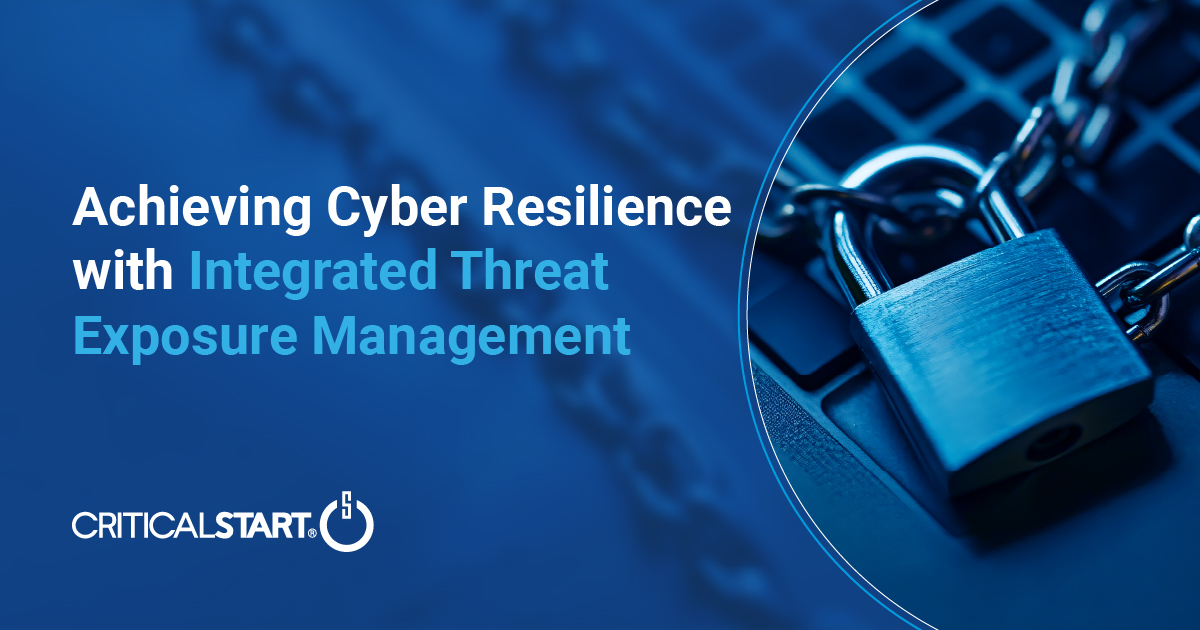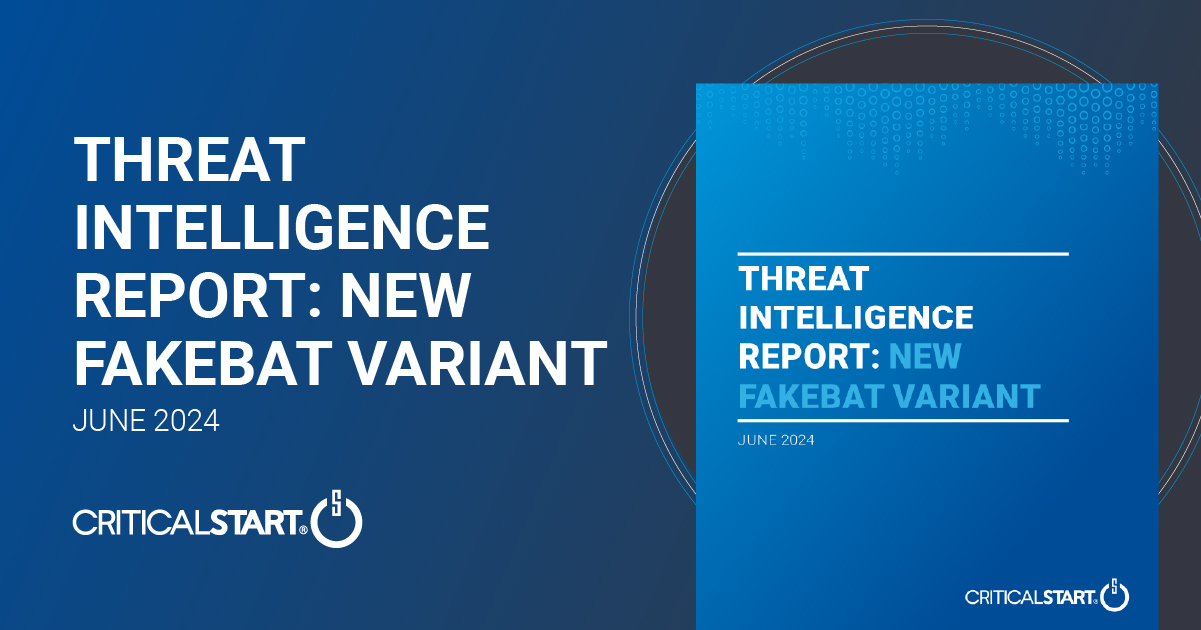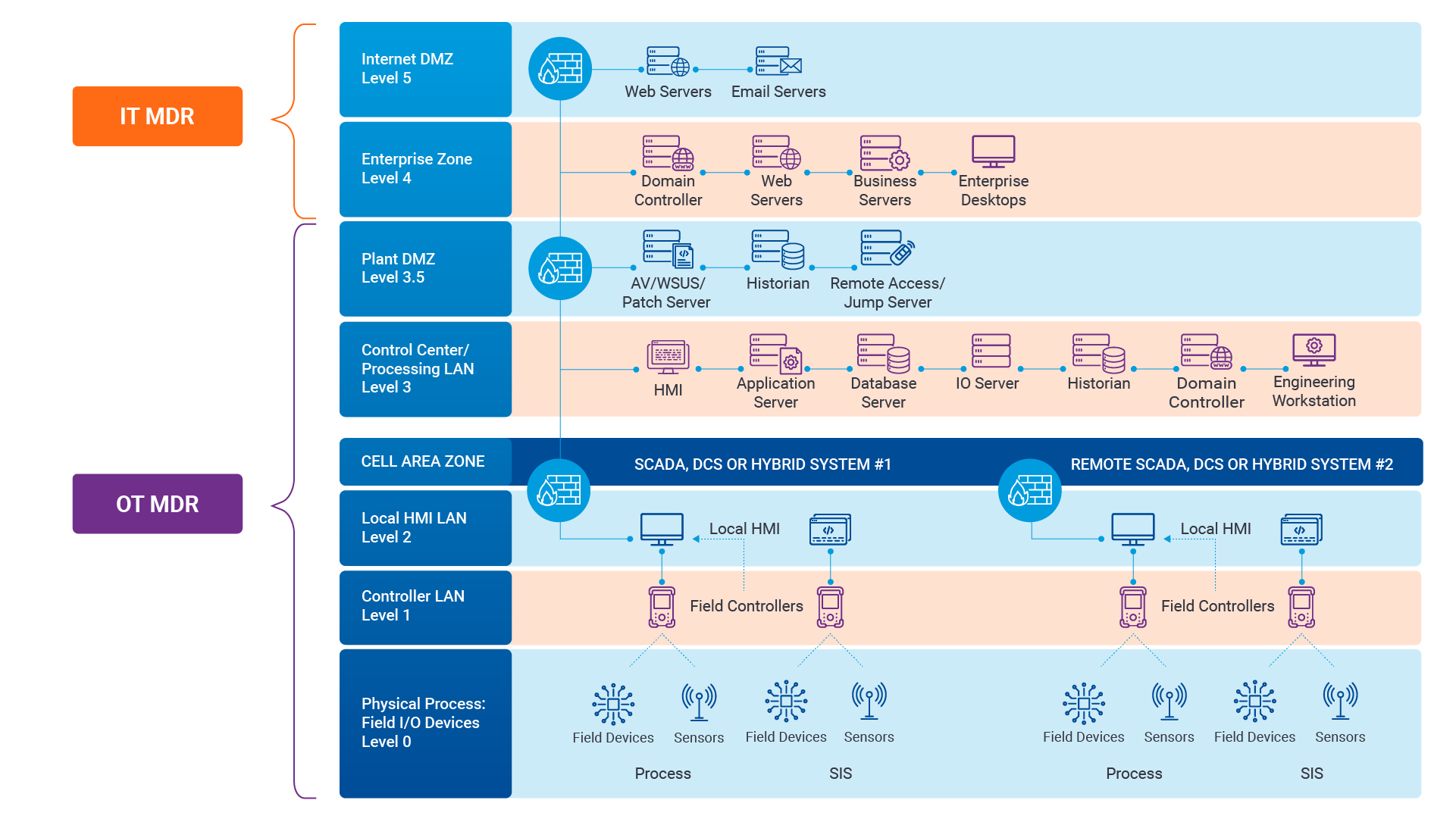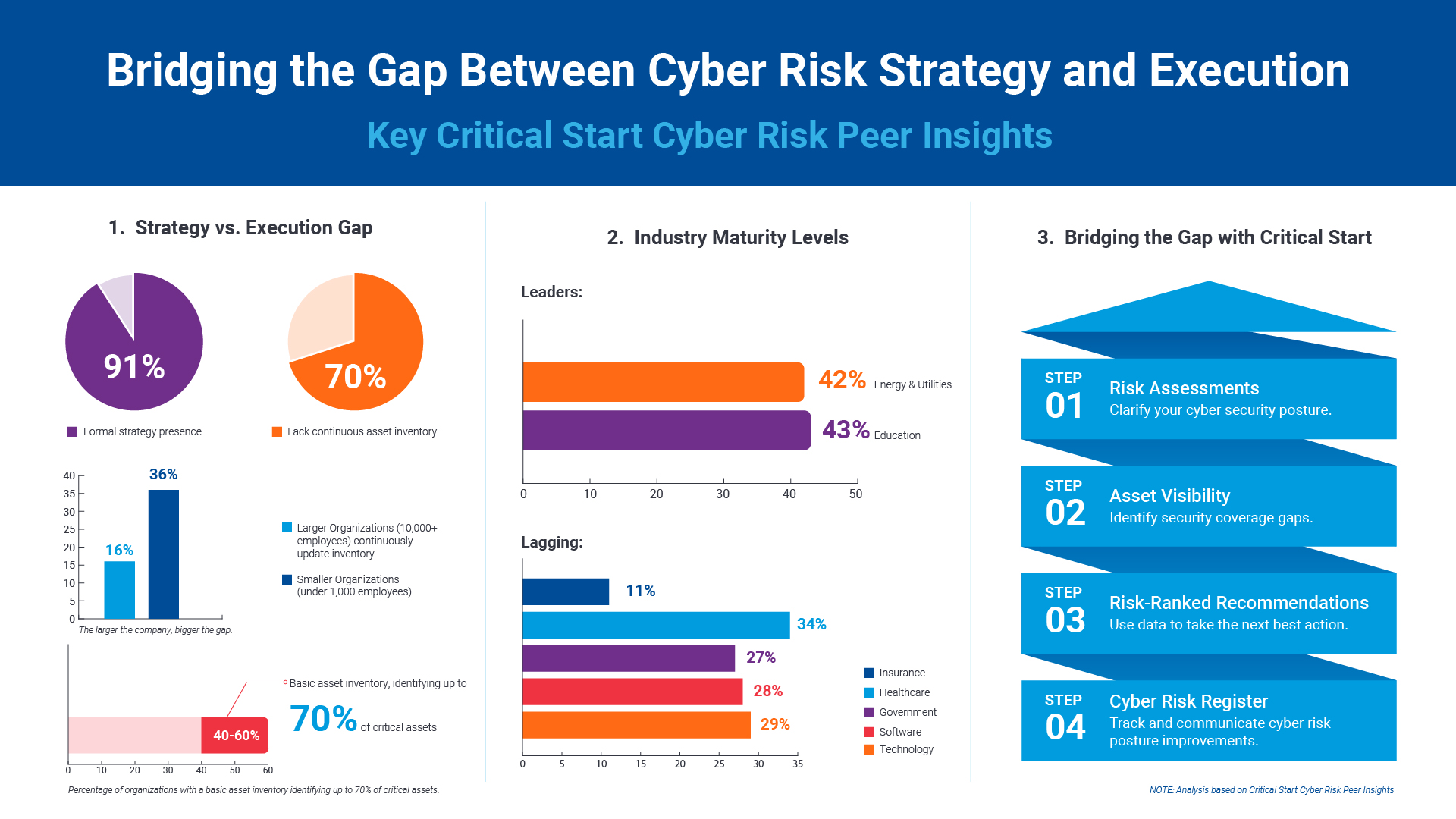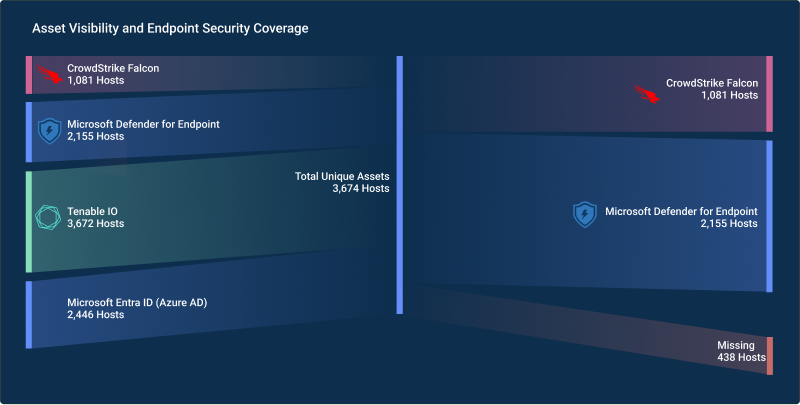China vowed to retaliate Wednesday after the United States abruptly ordered the closure of its consulate in Houston, a move that further inflamed tensions between the two superpowers.
Wang Wenbin, a spokesman for China’s foreign ministry, said China was notified on Tuesday that it must close the consulate within 72 hours. In a regular daily news briefing, he described the action as an “unprecedented escalation” and said China would “react with firm countermeasures” if the U.S. does not revoke the decision.
State Department spokesperson Morgan Ortagus said in a statement that the closure was “to protect American intellectual property and American’s private information.”
“The United States will not tolerate the (People’s Republican of China’s) violations of our sovereignty and intimidation of our people,” Ortagus said. It is unusual but not unprecedented for the U.S. to close another country’s consulate.
Secretary of State Mike Pompeo declined to explain what triggered the decision when pressed on the matter during a news briefing in Copenhagen, where he was meeting with Danish officials. But he raised long-standing U.S. accusations that China’s government is stealing American intellectual property.
He also brought up the Department of Justice’s indictment Tuesday of two Chinese hackers charged with stealing trade secrets from hundreds of global targets and, more recently, probing for vulnerabilities in U.S. companies involved in the development of COVID-19 treatments and vaccines.
“President Trump has said, ‘enough,’” Pompeo said. “We’re not going to allow this to continue to happen.”
Pompeo did not elaborate on the allegations of spying over treatments and vaccines, nor did he say whether the closure of the Houston consulate had anything to do with that case.
Sen. Marco Rubio, R-Fla., who chairs the Senate Select Committee on Intelligence, said in a tweet that “#China’s Houston consulate is a massive spy center” and added that “forcing it to close is long overdue.”
Rubio said China’s consulate in Houston “is not a diplomatic facility” and suggested it is staffed with spies. “It is the central node of the Communist Party’s vast network of spies & influence operations in the United States … This needed to happen.”
The U.S. move marked “a major escalation” in U.S.-China tensions, said Scott Kennedy, an expert on China with the the Center for Strategic and International Studies think tank.
Tuesday’s decision was “nearly unprecedented,” he said, noting the only other similar incident came in 2017, when the Trump administration closed two Russian compounds in retaliation for Moscow’s interference in the 2016 presidential election.
“All governments engage in spying from home and via their diplomatic facilities abroad … including the United States,” Kennedy added. “So the question is, was the Houston consulate doing things that are beyond the typical type of intelligence gathering that is standard practice.”
So far, he said, the Trump administration’s statements have not addressed that.
Sen. Mark Warner, the top Democrat on the intelligence committee, questioned whether the consulate closure would have any impact on China’s malign behavior, and he criticized the Trump administration for taking an erratic approach to China’s aggression.
“I do not believe for an instant that this action will stop that threat, but hopefully the Chinese Communist Party will take it as a signal that their actions have consequences,” Warner said in a statement to USA TODAY. “I am equally hopeful that the White House will finally take this issue seriously and work to address it with smart and thoughtful policies, instead of engaging in escalatory actions and intermittent failed trade wars followed by interludes of admiration for the Chinese authoritarian regime.”
Wang said the consulate was operating normally.
Local media in Houston reported Tuesday that documents were being burned in a courtyard at the consulate. Texas fire and police officers responded to the reports of a fire. It was not clear if they were permitted to enter the property in Houston’s Montrose neighborhood.
“You could just smell the paper burning,” a witness at the scene told KPRC 2, an NBC-affiliate television station.
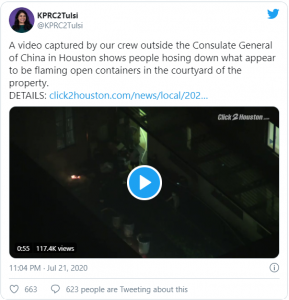
China’s consulate in Houston could not immediately be reached for comment.
In an interview with Fox News, Rubio said its normal procedure to start destroying documents when an embassy or consulate is closed.
“For us, the Marines are in charge of doing that if someone closes our embassy. So they’ll burn documents and shred documents and destroy computers and so forth,” he said. He said he expects China to close a U.S. diplomatic facility in China in retaliation.
U.S.-China relations have been battered by a rift over the coronavirus pandemic, strained trade relations and Beijing’s move to assert more authority over Hong Kong. In recent weeks, both nations have slapped sanctions on each other’s officials.
In addition to its embassy in Washington, D.C., and the consulate in Houston, China has consulates in Chicago, Los Angeles, New York City and San Francisco.
“The U.S. has far more diplomatic missions and staff working in China. So if the U.S. is bent on going down this wrong path, we will resolutely respond,” Wang said.
The U.S. has consulates in Chengdu, Guangzhou, Shanghai, Shenyang and Wuhan. .
The U.S. Embassy is located in Beijing.
Rob Davis, CEO of Texas-based CRITICALSTART, a cybersecurity firm that monitors threats from state-aligned actors, said the Trump administration’s ordered closure of China’s consulate in Houston could lead to more hacking against American interests.
“It is no secret that Chinese state actors have long been suspected of engaging in espionage on U.S. soil, including those serving in official roles. The Houston consulate is no different, and it is possible that this is just the tip of the iceberg,” he said.
Feature in USA TODAY | July 22, 2020
![]()
Transform Vulnerability Management: How Critical Start & Qualys Reduce Cyber Risk
In a recent webinar co-hosted by Qualys and Critical Start, experts from both organizations discusse...![]()
H2 2024 Cyber Threat Intelligence Report: Key Takeaways for Security Leaders
In a recent Critical Start webinar, cyber threat intelligence experts shared key findings from the H...![]()
Bridging the Cybersecurity Skills Gap with Critical Start’s MDR Expertise
During a recent webinar hosted by CyberEdge, Steven Rosenthal, Director of Product Management at Cri...![]()
2024: The Cybersecurity Year in Review
A CISO’s Perspective on the Evolving Threat Landscape and Strategic Response Introduction 2024 has...![]()
Modern MDR That Adapts to Your Needs: Tailored, Flexible Security for Today’s Threats
Every organization faces unique challenges in today’s dynamic threat landscape. Whether you’re m...![]()
Achieving Cyber Resilience with Integrated Threat Exposure Management
Welcome to the third and final installment of our three-part series Driving Cyber Resilience with Hu...Why Remote Containment and Active Response Are Non-Negotiables in MDR
You Don’t Have to Settle for MDR That Sucks Welcome to the second installment of our three-part bl...![]()
Choosing the Right MDR Solution: The Key to Peace of Mind and Operational Continuity
Imagine this: an attacker breaches your network, and while traditional defenses scramble to catch up...![]()
Redefining Cybersecurity Operations: How New Cyber Operations Risk & Response™ (CORR) platform Features Deliver Unmatched Efficiency and Risk Mitigation
The latest Cyber Operations Risk & Response™ (CORR) platform release introduces groundbreaking...![]()
The Rising Importance of Human Expertise in Cybersecurity
Welcome to Part 1 of our three-part series, Driving Cyber Resilience with Human-Driven MDR: Insights...![]()
Achieving True Protection with Complete Signal Coverage
Cybersecurity professionals know all too well that visibility into potential threats is no longer a ...![]()
Beyond Traditional MDR: Why Modern Organizations Need Advanced Threat Detection
You Don’t Have to Settle for MDR That Sucks Frustrated with the conventional security measures pro...The Power of Human-Driven Cybersecurity: Why Automation Alone Isn’t Enough
Cyber threats are increasingly sophisticated, and bad actors are attacking organizations with greate...Importance of SOC Signal Assurance in MDR Solutions
In the dynamic and increasingly complex field of cybersecurity, ensuring the efficiency and effectiv...The Hidden Risks: Unmonitored Assets and Their Impact on MDR Effectiveness
In the realm of cybersecurity, the effectiveness of Managed Detection and Response (MDR) services hi...![]()
The Need for Symbiotic Cybersecurity Strategies | Part 2: Integrating Proactive Security Intelligence into MDR
In Part 1 of this series, The Need for Symbiotic Cybersecurity Strategies, we explored the critical ...Finding the Right Candidate for Digital Forensics and Incident Response: What to Ask and Why During an Interview
So, you’re looking to add a digital forensics and incident response (DFIR) expert to your team. Gr...![]()
The Need for Symbiotic Cybersecurity Strategies | Part I
Since the 1980s, Detect and Respond cybersecurity solutions have evolved in response to emerging cyb...![]()
Critical Start H1 2024 Cyber Threat Intelligence Report
Critical Start is thrilled to announce the release of the Critical Start H1 2024 Cyber Threat Intell...![]()
Now Available! Critical Start Vulnerability Prioritization – Your Answer to Preemptive Cyber Defense.
Organizations understand that effective vulnerability management is critical to reducing their cyber...![]()
Recruiter phishing leads to more_eggs infection
With additional investigative and analytical contributions by Kevin Olson, Principal Security Analys...![]()
2024 Critical Start Cyber Risk Landscape Peer Report Now Available
We are excited to announce the release of the 2024 Critical Start Cyber Risk Landscape Peer Report, ...Critical Start Managed XDR Webinar — Increase Threat Protection, Reduce Risk, and Optimize Operational Costs
Did you miss our recent webinar, Stop Drowning in Logs: How Tailored Log Management and Premier Thre...Pulling the Unified Audit Log
During a Business Email Compromise (BEC) investigation, one of the most valuable logs is the Unified...![]()
Set Your Organization Up for Risk Reduction with the Critical Start Vulnerability Management Service
With cyber threats and vulnerabilities constantly evolving, it’s essential that organizations take...![]()
Announcing the Latest Cyber Threat Intelligence Report: Unveiling the New FakeBat Variant
Critical Start announces the release of its latest Cyber Threat Intelligence Report, focusing on a f...Cyber Risk Registers, Risk Dashboards, and Risk Lifecycle Management for Improved Risk Reduction
Just one of the daunting tasks Chief Information Security Officers (CISOs) face is identifying, trac...![]()
Beyond SIEM: Elevate Your Threat Protection with a Seamless User Experience
Unraveling Cybersecurity Challenges In our recent webinar, Beyond SIEM: Elevating Threat Prote...![]()
Navigating the Convergence of IT and OT Security to Monitor and Prevent Cyberattacks in Industrial Environments
The blog Mitigating Industry 4.0 Cyber Risks discussed how the continual digitization of the manufac...![]()
Critical Start Cyber Risk Peer Insights – Strategy vs. Execution
Effective cyber risk management is more crucial than ever for organizations across all industries. C...![]() Press Release
Press ReleaseCritical Start Named a Major Player in IDC MarketScape for Emerging Managed Detection and Response Services 2024
Critical Start is proud to be recognized as a Major Player in the IDC MarketScape: Worldwide Emergin...Introducing Free Quick Start Cyber Risk Assessments with Peer Benchmark Data
We asked industry leaders to name some of their biggest struggles around cyber risk, and they answer...Efficient Incident Response: Extracting and Analyzing Veeam .vbk Files for Forensic Analysis
Introduction Incident response requires a forensic analysis of available evidence from hosts and oth...![]()
Mitigating Industry 4.0 Cyber Risks
As the manufacturing industry progresses through the stages of the Fourth Industrial Revolution, fro...![]()
CISO Perspective with George Jones: Building a Resilient Vulnerability Management Program
In the evolving landscape of cybersecurity, the significance of vulnerability management cannot be o...![]()
Navigating the Cyber World: Understanding Risks, Vulnerabilities, and Threats
Cyber risks, cyber threats, and cyber vulnerabilities are closely related concepts, but each plays a...The Next Evolution in Cybersecurity — Combining Proactive and Reactive Controls for Superior Risk Management
Evolve Your Cybersecurity Program to a balanced approach that prioritizes both Reactive and Proactiv...![]()
CISO Perspective with George Jones: The Top 10 Metrics for Evaluating Asset Visibility Programs
Organizations face a multitude of threats ranging from sophisticated cyberattacks to regulatory comp...![]()
5 Signs Your MDR Isn’t Working — and What to Do About It
Are you confident your MDR is actually reducing risk? If so, how confident? According to recent indu...![]() Datasheet
DatasheetSecurity Services for SIEM
Critical Start’s Security Services for SIEM combines Managed SIEM and MDR for SIEM to deliver ...![]()
Building a Future-Proof Security Stack with Flexible MDR
Technology evolves. Organizations grow. But is your cybersecurity strategy keeping up? Come on; be h...
Newsletter Signup
Stay up-to-date on the latest resources and news from CRITICALSTART.
Thanks for signing up!





